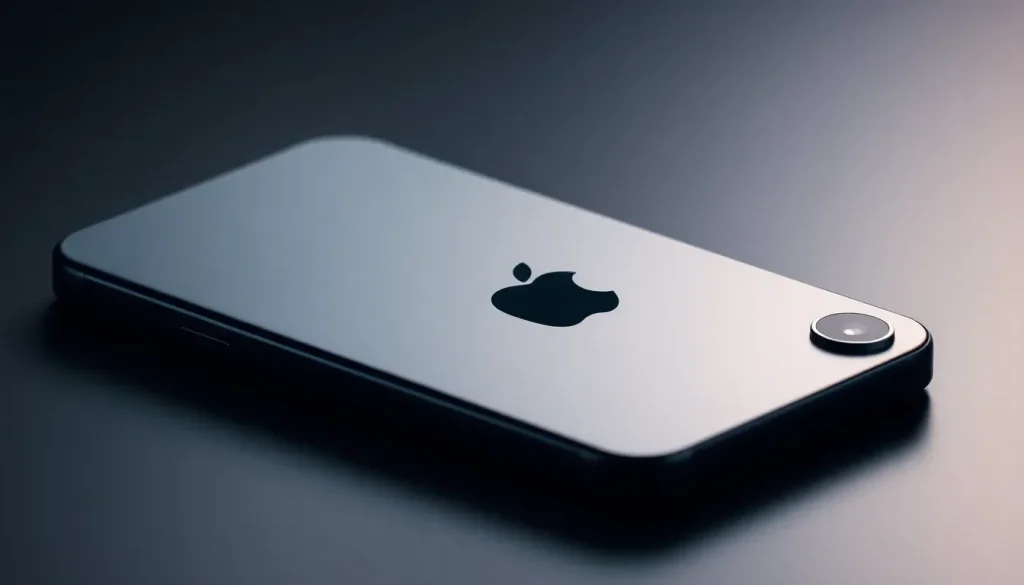Jefferies maintains bearish outlook on Apple stock after iPhone 18 downgrade

In the ever-evolving world of technology and finance, the dynamics surrounding major corporations like Apple can shift dramatically based on analyst perspectives. Recently, Jefferies, a well-known and historically bearish analyst firm, has made headlines by downgrading Apple stock amid concerns regarding the upcoming iPhone 18. The implications of such predictions are far-reaching, affecting not only investors but also the company's market perception and future strategies.
Understanding the nuances of these evaluations can provide valuable insights into market trends and consumer behavior. In this article, we will delve into the details of Jefferies' downgrade, contrasting it with alternative analyses, particularly from Morgan Stanley, and explore what these projections mean for Apple and its shareholders.
Jefferies' downgrade: An overly cautious stance?
Jefferies analyst Edison Lee has downgraded Apple stock to "underperform," suggesting that investors are overly optimistic about the potential of the upcoming iPhone 18. The price target was adjusted slightly downward from $205.82 to $205.16, indicating Lee's belief that the stock has already factored in the recent surge in demand for the iPhone 17.
According to Lee, the strong sales of the iPhone 17 were largely influenced by:
- A significant price cut on the base model
- Attractive trade-in values for older devices
- A recovery in demand following a slow initial launch
However, Lee cautions that these favorable conditions are unlikely to recur with similar intensity for the iPhone 18. The projections suggest that Apple’s iPhone shipments will experience modest growth: 7% in fiscal 2025, a mere 1% in 2026, followed by a decline of 1% in 2027. This forecast aligns with revenue expectations to rise by only 6% in 2025, a figure Jefferies argues does not justify Apple’s current lofty valuation.
The foldable question: A gamble for Apple?
One of the significant wild cards in the upcoming iPhone lineup is the anticipated iPhone 18 Fold. Jefferies estimates annual sales of this foldable model at around 12.5 million units. However, this figure falls starkly short of the demand implied by Apple’s stock price, raising questions about the viability of foldables in a market that remains largely niche.
While foldables are gaining traction, several factors could limit their adoption, including:
- Higher price points compared to traditional smartphones
- Concerns over durability and design
- Consumer preferences for established smartphone formats
In addition, Jefferies predicts that the pricing for the iPhone 18 Pro and iPhone 18 Pro Max will be $100 higher than their predecessors, a projection it previously miscalculated for the iPhone 17 lineup, leading to skepticism about the accuracy of their current forecasts.
A contrasting outlook from Morgan Stanley
In stark contrast to Jefferies' pessimistic stance, Morgan Stanley has raised its price target for Apple stock to an optimistic $298. This revision is based on robust signals regarding the demand for the iPhone 18, suggesting a much stronger market than Jefferies anticipates.
Morgan Stanley highlights several key indicators:
- Predicted orders for the iPhone 17 could reach the low 90 million range, primarily driven by the Pro models.
- Apple is projected to sell approximately 243 million iPhones in 2026, potentially rising to 270 million if the iPhone Fold and innovations in Apple Intelligence capture consumer interest.
This divergence in outlook underscores the divided sentiment on Wall Street regarding Apple’s future growth drivers. At the time of Jefferies' downgrade, Apple shares were trading at $254.66, slightly down from their 52-week high of $260.10. However, at publication, shares had climbed to $258.48, indicating market resilience despite the downgrade.
The implications of these market assessments
The contrasting views from Jefferies and Morgan Stanley highlight the unpredictable nature of the tech market, particularly for a company as influential as Apple. Investors must navigate through these varying predictions, which could significantly influence stock performance and investor confidence.
As the launch date for the iPhone 18 approaches, the market will be closely watching consumer responses and sales figures. Factors that could influence these outcomes include:
- Consumer sentiment towards foldable devices
- Competitive pricing strategies from rivals
- Global economic conditions impacting discretionary spending
Given the complexity of the smartphone market and economic uncertainties, investors should remain vigilant, analyzing not just the predictions of individual analysts but also broader market trends and consumer behaviors.
For a deeper insight into these developments, consider watching the following video that discusses the implications of analyst predictions on Apple stock:
As we move into the next phase of Apple's product launches, the contrasts in analyst predictions will serve as a critical lens through which to assess the company's performance and strategic direction. Understanding these insights will be essential for anyone interested in the future of technology and investment opportunities in high-profile stocks like Apple.




Leave a Reply